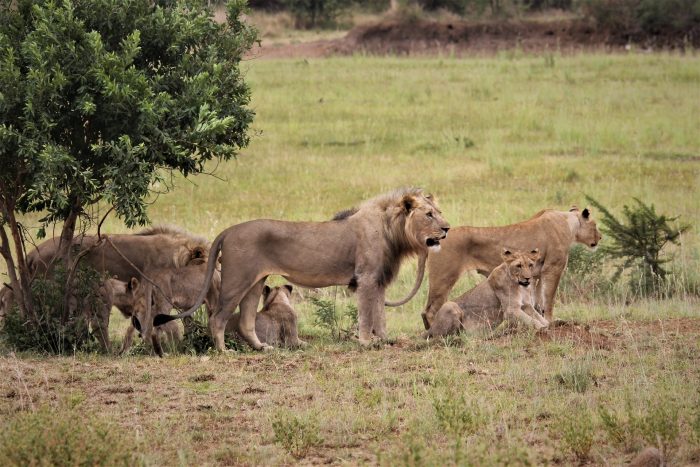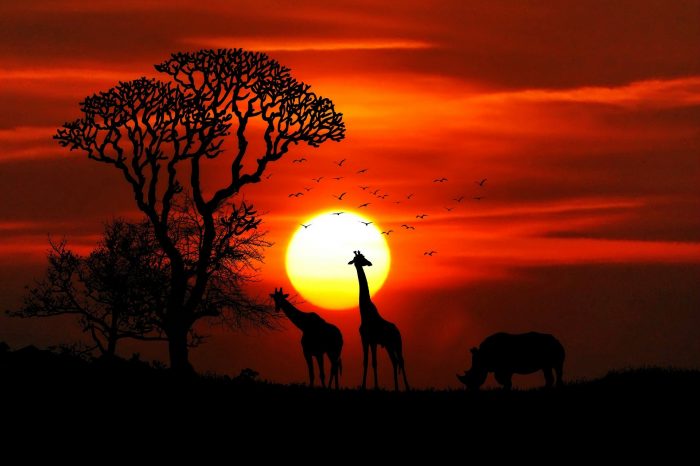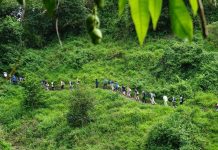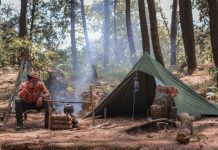For most people who have been to Africa, they will testify how breathtaking it is to spot the Big Five. If you are unfamiliar with this term, the Big Five refers to the main game animals; the lion, leopard, elephant, rhinoceros, and Cape buffalo. These big, powerful animals are truly a sight to see.
Many travelers travel to Africa time and time again to catch another glimpse of these breathtaking creatures. Witnesses the might of these animals serves as a reminder of the strength needed to survive in such an environment.
However, if it’s your first time, there are rules and tips you need to keep in mind to have an unforgettable experience. Whether you are driving in a 4WD vehicle, taking a safari walk, or even spotting from your room, here are some essential tips you should know.

Watch Out For Baboons
In almost all tourist places in Africa, you will find baboons. And they know you probably have something that they want – food. As such, ensure all your windows, either in your vehicle or hotel room, are probably closed. Secure all your belongings, especially food. Also, it might be a good idea not to go with food to your hotel room because they will follow you up.
If you think you have seen crafty beings, you haven’t seen anything yet until you have met a baboon. The minute you leave your bag and sandwich exposed, they will be gone in no time. If a baboon does try to take your food, you do not want to get in a fight with them. With their giant teeth, they might leave you with nasty injuries.
Other Crucial Safety Tips To Keep In Mind
You will probably be cautioned on what to expect. However, as human nature is, you might want to explore and may end up in danger. As you do this, also remember that most rangers would instead let you get in danger before they shoot one of their animals.
Always be sure to stay in the vehicle, unless otherwise instructed. Remember, you are not in a zoo and, any chance these animals get, they will attack you. Even if you just want to get that perfect shot, do not move out unless the rangers clear you to do so.
Always listen to your guide; they know best. If they say move, sit or move in, listen and do as advised. Furthermore, always keep your voices as low as possible to not to scare animals.
However, these rules are not cast in stone; they can change depending on where you are. For instance, rules in South Africa differ from the ones in Kenya or Uganda. The bottom line is the rules are there to keep both you and the animals safe.
Spotting The Animals
Keep in mind that just because you paid for a safari doesn’t mean the animals are aware of that. Wild animals will always be wild animals, and they are generally not friendly. At any given opportunity, they will eat you. Also remember that in their territories, things run on their time.
In most African countries, parks do not have fences. However, that does not mean that any time you want to see a lion, you will be able to. If you miss out the first time, it’s not anyone’s fault, not even the guides. These are tips to increase your chances of spotting the Big Five.
First, you should get a trusted guide. They must be familiar with the animals’ movements, best areas for spotting, and of course, the terrain of the park.
Secondly, do not expect too much. There are so many animals that you can’t see everything in one day. It might take you several months. If possible, choose a time of the year when the grass is shorter. As always remember, animals move at their own pace.
Another tip is to always be alert. It’s not always the case that animals have to come to you. Keep that phone ready and keep your eyes out, just in case you might catch a glimpse.
Finally, always listen. The chances are that probably you are not the only one looking for animals; maybe a lion is also searching for food. As such, if you hear any animal noises, bird calls, or even a strange silence, it could be a sign that a lion is lurking somewhere nearby.
These tips, of course, should go hand in hand with what your guide will give you. Don’t expect to find a lion sleeping in the middle of the road; they love the shade, so check there. Likewise, leopards love being in trees. Don’t expect to find them by the roadside either.
How To Take Big Five Photography
For all photographers, there is no better place to take perfect, breathtaking pictures than Africa. Between the terrain, unforgiving jungles, rivers, and amazing animals, there is plenty to capture. There is no better way to capture that memorable shot than doing it on a safari.
The first important tip is to, ensure your camera is fully charged or have spare batteries just in case you run out. As someone who enjoys photos, you are likely well aware that having a quality camera is what makes your work a lot easier.
Make sure your camera has enough storage too. If not, have some extra SD cards on you. This will allow you to take as many pictures as you want without getting worried about running out of storage.
If you want to take pictures at night, do not use a flash as this might scare animals away. Use as much natural light as possible. The perfect shots are taken either in the morning or in the evening to capture that sunrise or sunset shot.
Finally, be patient. You will not find animals posing ready for you to take their pictures. Once you spot them, take your time, and understand their behavior, take pictures of their tracks as well, landscapes, and so on.
As you take pictures for memory’s sake, do not miss out on the fun part of it -watching these animals. Once in a while, put your camera down and enjoy what mother Africa has to offer you; you might not get another chance to do so.

Camping Safely While On Safari
What is a trip to Africa without sleeping under the stars? Imagine sleeping to the roar of a lion, hippo grunts, or even the chattering of hyenas. It’s an unforgettable experience. However, don’t forget that it comes with its dangers, too, so watch out and get a responsible guide.
Among other tips, remember to keep your tent zipped at all times, don’t walk around at night, and as we mentioned above, do not take food to your tent or leave it around. The Baboons will be watching you. And if you think these tips are a little over-the-top, wait until you see the tracks around your tent the next morning.
































